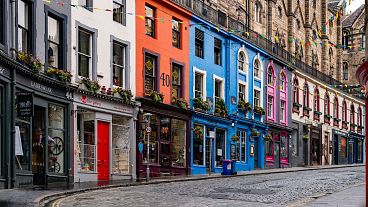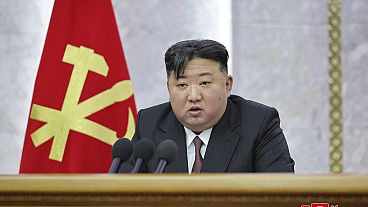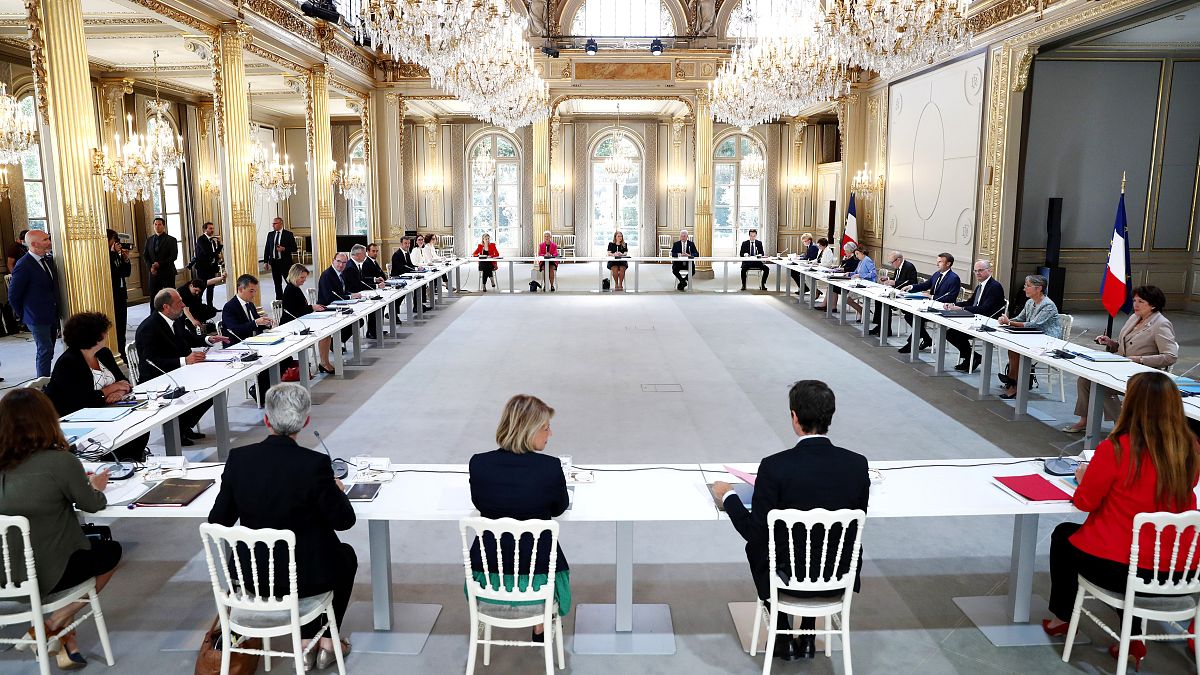What can be expected from Emmanuel Macron's newly reshuffled government amid the COVID-19 crisis and ahead of the 2022 presidential race?
What can be expected from Emmanuel Macron's newly reshuffled government amid the COVID-19 crisis and ahead of the 2022 presidential race?
Overall, the new appointments confirm a shift to the centre-right of his "La République en Marche" (LREM) movement, to the dismay of many on the left.
No-one can envy the French president over the scale of the challenges facing the country. The coronavirus pandemic has largely wiped out economic progress made since he came to power in 2017 and the outlook is bleak. Macron's popularity remains low.
Euronews has spoken to two political analysts about what to note from the reshuffle -- and what to look out for in the coming months.
Macron's is a centre-right government
Many commentators were surprised at the replacement last week of the popular prime minister Edouard Philippe. Like his predecessor, Jean Castex -- the smalltown mayor from the Pyrenees known as "Monsieur Deconfinement" for his role overseeing France's easing out of lockdown -- springs from the political right.
Until now Castex has belonged to the right-wing "Les Républicains" (LR) party and he was an adviser to former President Nicolas Sarkozy.
The new team has appointments from the left but another prominent figure from Sarkozy's tenure -- Roselyne Bachelot -- returns to office as culture minister.
Above all, some key posts are filled by figures from the right. Finance minister Bruno Le Maire remains in place with extra responsibility for economic recovery. At the interior ministry, Christophe Castaner -- who heralded from the left -- is replaced by Gérald Darminin, also from "Les Républicains" on the right.
Vincent Martigny, a professor in political science at the University of Nice and the Ecole Polytechnique, says Macron's presidency has evolved from the movement that sought to break the mould of French politics in 2017.
"What you can see in the new government is the amazing weight of the centre-right, confirming that Macron is not any more going beyond the traditional right-left political gap or cleavage, but rather confirming that "La République en Marche" is a centre-right party," he told Euronews.
Macron has 2022 in mind
With under two years to go until the next presidential race, Macron has more than half an eye on his own position.
Not only is the president's standing low according to opinion polls, his movement has no solid base around the country. LREM candidates failed to win any large cities in last month's local elections, and many smaller towns and rural areas went to the right-wing LR party.
Some see the shape of the new government as confirmation that Macron's priority is not to woo the left -- many of whom instinctively detest the president -- but to park his tanks firmly on ground where he has made more headway.
"Clearly for Emmanuel Macron, his strategy for 2022 is to be the right-wing candidate and to make sure that there is no-one coming from 'Les Républicains', the right-wing party, coming as a contender," Alexis Poulin, political analyst and founder of Le Monde Moderne, told Euronews.
Vincent Martigny of Nice University also detects a determination not to be eclipsed by potential rivals from his own side. "Mr Macron clearly didn't want to be threatened by anybody" in the 2022 race, he says.
"Probably that's one of the many reasons why (ex-prime minister) Mr Philippe couldn't stay in power because he was more popular than the president," he argues, adding that with the appointment of Jean Castex "he is paving the way for the next election".
COVID-19 crisis forces a change of direction
The pandemic threatens to erase the achievements of the first three years of Macron's presidency. More than 800,000 jobs have been created since 2017 but at least as many are at risk after the economic earthquake resulting from the shutdown. National output is set to plunge by over 10%.
Other key reforms have been put on hold, although the president wants to revive his planned changes to the state pensions system.
Martigny sees a parallel with Nicolas Sarkozy's presidency. Despite being elected in 2007 as an economic liberal, in the wake of the financial crash the following year, spending and debt soared as billions of euros were pumped into the economy.
Likewise, he thinks the pandemic forces the hand of the current president, who reportedly had some influence on the EU's shift in position to mutualise debt to finance the recovery.
"Clearly there is no way Mr Macron can go back to some kind of austerity policy," the political scientist says, adding that the new policy will need to involve "relaunching the economy by investing a lot of public spending in it, and clearly that was not what he intended to do when he was elected."
Macron's green agenda under scrutiny
The "time has come to act" on the environment, Emmanuel Macron said as he outlined his plans last month. The government's regeneration plans for the economy include €15 billion of investment earmarked for the ecological transition over the next two years.
The president has promised to consider all but three of nearly 150 recommendations proposed by a "Citizens' Council for the Climate", created by Macron as a response to the "Gilets Jaunes" ("Yellow Vests") movement during a winter of unrest 18 months ago.
Even before last month's poor local election results, he had been tipped to adopt a greener, more social programme during the rest of his presidency.
Poulin sees a new senior environmental appointment in the government as evidence that Macron is paying some attention to voters who deserted LREM in France's large cities.
"Now he's going to try to get them back with a new minister, Barbara Pompili, coming from the green party, and who is going to try to show that his presidency is going to be more greener, and he will try to show that he is doing more on the side of ecology," he said.
But he added that the government's environmental policy may be "mainly communication rather than actions". Vincent Martigny also believes that although there will be some initiatives, a big green programme is not on the cards.
"I don't think it's going to happen," he told Euronews. "Clearly the political space of Mr Macron today is at the centre-right -- and centre-right voters, their priority is not the environment, their priority is rebuilding the economy."
How will the opposition shape up?
The yellow vests movement has petered out for now but anti-government protests remain widespread, over issues such as the health service, employment and the legal system.
Emmanuel Macron's opinion poll rating remains stubbornly low even though his judgment during the pandemic has arguably been better than that of his now-ousted prime minister.
What is uncertain is whether public hostility to the French president will crystallise into one or more political forces capable of mounting a successful challenge in 2022.
Three years ago his LREM movement burst through the middle as the established left and right parties collapsed, and the young pretender trounced his unpopular rival Marine Le Pen in the presidential run-off. Some believe Macron is betting on a similar scenario next time.
"He's looking at the polls and is seeing that Marine Le Pen is given number one for the first round," says Vincent Martigny. "He's thinking that's his main competitor, so the whole stake for him is to be able to reach the second round... If you pass the first round your chances of getting elected against Marine Le Pen are very high."
However, the analyst argues that Macron is taking a huge gamble.
"The question is, will he be right in thinking that the left will not be united for the next election? Nothing is less sure. And will he be right thinking that it's going to be enough to compose his government with centre-right people to prevent the emergence of a new leader on the centre-right?" Martigny says.
"The lesson of 2017 is that nobody is safe now in the French political space."
Watch the interview with analyst Alexis Poulin in the video player above.












